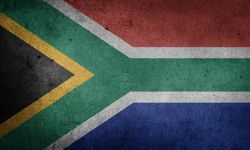In the letter, they say that it is “despite its camouflage, in reality a set of repressive statutory controls being imposed on the press against its will … It breaches the fundamental principle that politicians must never get involved in editorial content regulation.” The letter comes in advance of a planned meeting of the Privy Council next week.
The strongly worded letter – signed by bodies including the World Press Freedom Committee, the International Press Institute and the Inter American Press Association – signals the dangerous impact such a move would have across the globe. They say:
“If the UK moves to control the press through the force of law then it will have a terrifying knock-on effect throughout the Commonwealth and much of the developing world where Britain has a key leadership role. The fact that it is being done by Royal Charter …will make it infinitely worse because of the respect in which you personally … are held throughout the world.”
It adds that the Queen’s name will be taken in vain by governments who want to muzzle the press: “It is your name, Your Majesty, that will regrettably be taken in vain. ‘If it is good enough for the Queen, it is good enough for us.’”
The letter points out that Britain will not be able to exercise a leadership role at the Commonwealth Heads of Government Meeting in Sri Lanka next month in arguing for human rights throughout the Commonwealth when it has “signed a Royal Charter which will be seized on by enemies of free speech everywhere, eager to impose similar controls.”
According to the newspaper publishers, a new poll, conducted this week by Survation, published today shows that the public overwhelmingly believes that politicians would exploit their own plans for press regulation to dampen criticism of them. Just under 7 in 10 believe that there would be a “high” or “moderate” risk of this happening.
62% of people believe that politicians should not have the final say over changes to press regulation, which is a key plank of the Politicians’ Royal Charter due to be presented to The Queen for signature. Nearly two thirds believed a charitable trust not in the hands of politicians should be given the job, compared with only 13% for a Royal Charter set up by politicians.
Signatories of the letter include: the World Press Freedom Committee, based in Washington and Paris; the International Press Institute in Vienna; the International Association of Broadcasting in Uruguay; the Inter American Press Association based in Miami; the World Association of Newspapers in Paris and Darmstadt; FIPP, the worldwide Magazine Media Association in London; and the Commonwealth Press Union Media Trust.
The text of the letter
23 October 2013
Your Majesty
For more than three centuries since Britain abolished the last set of statutory controls on the press in 1695, the United Kingdom has been a consistent champion of the most crucial freedom of all - freedom of expression – and a beacon of liberty across the world.
Freedom of expression was central to the European Convention of Human Rights which Britain helped draft. It is part of the Universal Declaration of Human Rights to which the UK is a signatory. It is a core belief in the Commonwealth Charter which Britain inspired. Free speech and freedom of expression have throughout the 20th and 21st centuries therefore been at the core of Britain’s international commitments, of its leadership of the free world, and of its international reputation as a liberal democracy.
Yet all that is now in danger. No one should be in any doubt that the proposed Royal Charter which politicians are forcing Your Majesty to sign is, despite the camouflage, in reality a set of repressive statutory controls being imposed on the press against its will. That should not be the function of a Royal Charter.
Some will argue that it is just intended to establish a body to oversee an independent regulator. But by laying down rules about how that regulator must work and how the ethical Codes that bind the press should be written this toxic Charter brings Parliament for the first time ever to the heart of the newsroom. It breaches the fundamental principle that politicians must never get involved in editorial content regulation. And it lays the foundation for fully fledged statutory controls.
That will have a chilling impact on journalism throughout the United Kingdom – from the biggest national newspapers to the smallest local and regional papers and magazines in the four nations of your country – weakening democracy as a result.
But far more important to us is the impact of your actions across the globe. The world still follows Britain in so many areas. If the UK moves to control the press through the force of law then it will have a terrifying knock-on effect throughout the Commonwealth and much of the developing world where Britain has a key leadership role. The fact that this is being done by Royal Charter – an instrument traditionally used to grant rights, not to curtail them – will make that infinitely worse because of the respect in which You personally, and the Crown institutionally, are held throughout the world.
The actions of Britain’s Parliament will be used as an excuse by those who want to muzzle the press in their own country and stifle the free flow of information – and there are many governments who would love to do so. And it is your name, Your Majesty, that will regrettably be taken in vain. “If it is good enough for the Queen, it is good enough for us.”
Already we have seen the chill winds of what is happening in the UK in South Africa, Botswana and Sri Lanka. Many more will follow.
This issue is of huge importance for freedom of expression in the UK. It is important for Britain’s standing in the world. But above all it is important for the impact on countries not nearly so lucky as the many of us in Europe who until now have enjoyed fundamental freedoms.
At the Commonwealth Heads of Government meeting next month in Sri Lanka, the British Government – with The Prince of Wales as your representative – should be campaigning for the protection and expansion of free expression throughout the Commonwealth, not least in countries like Rwanda, Singapore and Sri Lanka itself, which persistently lag at the bottom of world press freedom indices alongside Syria and North Korea. Further, the British Government, which decriminalised defamation in 2009, should also take strong steps encouraging Commonwealth countries to repeal criminal defamation laws. But Britain will be in no position to do that if you have signed a Royal Charter which will be seized on by enemies of free speech everywhere eager to impose similar controls. Britain will have abrogated its rights and the world will be worse off for that.
We urge you, Ma’am, as the final guarantor of freedom of expression across the UK and your Commonwealth, not to sign this Charter.










